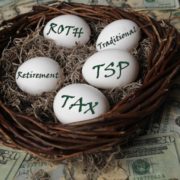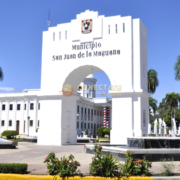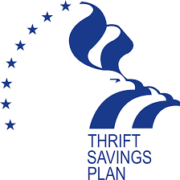More than 67 million Americans (22% of the U.S. population) receive some form of Social Security. 1 The public insurance has been laying the foundation for economic security for Americans for more than 80 years, providing help to retirees and others.2
Since the nation’s founding, its leaders have struggled with finding humane and sound economic approaches to helping the elderly, widows and orphans, and the less fortunate. It wasn’t until President Roosevelt signed the Social Security Act into law on August 14, 1935, that Americans witnessed a turning point in the government’s role in providing a safety net for its aging population.3
Developed on the cusp of the Great Depression (1929-1935), the act promised relief to millions of elderly and retired Americans. Social Security provided benefits for retirement, aid to dependent children, and insurance for the disabled or the unemployed. 4
Today, Social Security benefits represent on average a third of retirees’ income. 5 Nearly 90% of Americans 65 and older receive some type of Social Security benefits. About half of married couples and 71% of unmarried people on Social Security rely on the benefits for at least 50% of their incomes. Nearly a quarter of married couples and about 43% of unmarried people rely on Social Security for at least 90% of their income.
The Bipartisan Budget Act of 2015 6 closed two complex filing loopholes available to married couples. The loopholes allowed some married people to begin receiving spousal benefits at their full retirement age, while their own Social Security benefits continued to grow by delaying filing for it.
The law requires applicants to file for both benefits. Called “deemed filing,” the revisions are extended to those who have at least reached their full retirement age. Deemed filing means you were “deemed” to file for both benefits.
Here are four important changes to Social Security implemented in 2018: 7, 8
- Social Security recipients receive a 2% increase in payments in 2018. The Social Security Administration (SSA) attempts to match benefits to inflation.
- The maximum taxable earnings limit rose to $128,400 (from $127,200 in 2017). Earnings above that limit are not taxed. Workers’ Social Security tax remains at 6.2%.
- The full retirement age continues to rise. It is scheduled to increase by two months each year until 2022, when it reaches 67.
- Earning limits are expected to increase. Social Security recipients who work will find their benefits
temporarily reduced.
We’ll discuss many of these items in greater detail later in this report. The SSA makes annual changes to the program. 9
Here are some important facts:
Your benefit amount depends on your retirement age.
Your benefit amount varies depending on when you apply for benefits. You may file to claim benefits before your full retirement age. The earliest you can claim is at 62; the latest you can claim is 70. 10 If you claim prior to reaching your full retirement age, the SSA reduces your benefit amount by a percentage for each month prior to your full retirement age. For example, if you were born in 1960 and retire at 62 (2022), you’ll get 70% of your monthly benefits. 11 If you retire at 65, you’ll get 86.7%.
Full retirement age varies. The full retirement age is 66 years and 2 months for those born in 1955. The age gradually increases to 67 for people born in 1960 and later. 12 If retirees take benefits prior to their full retirement age, their benefits will be permanently reduced. The full retirement age is when recipients will be able to receive their full benefits (or 100% of their calculated benefits).
Following legislative changes in 1983, the full retirement age, which was 65, began rising by two months starting for people born in 1938. 13 However, benefits will increase by 8% per year for those who decide to delay collecting Social Security beyond their full retirement age. Recipients who wait until they’re 70 to collect benefits will receive 24% higher payments.
Both choices (retiring early at 62 or delaying until the age of 70) have advantages and disadvantages. 14
The SSA calculates individual benefits so that recipients receive approximately the same total amount over the course of their retirement. 15
You may work and collect Social Security benefits.
The SSA acquires information from you, such as bank account and routing numbers, during the initial application process. You’re required to provide the SSA with outside earning estimates for the upcoming year.
The SSA obtains your outside earnings from the W-2 forms your employer files or your self-employment income on tax returns to verify your income and gauge your benefit amounts. Social Security benefits are based on the
projected income levels you report at the beginning of the year. The SSA will inform you if your benefits will have to be adjusted based on outside earnings. 16 The SSA sets outside earning limits for recipients who receive benefits. 17 When you exceed those limits, the SSA reduces your Social Security benefits. 17 The limit on outside earnings for 2018 is $17,040.
The SSA deducts $1 in benefits for every $2 above the outside income limit if you’re working and collecting Social
Security prior to your full retirement age. In the year you reach full retirement age, the SSA subtracts $1 in benefits for every $3 you earn above $45,360. However, that deduction only applies in the months of that year prior to the month you reach full retirement age.
In the month you reach your full retirement age, the SSA no longer restricts your outside earnings. This year’s
$45,360 outside income limit is an increase from 2017’s $44,880.
Here are some examples:
Mr. Jones turns 67 (his full retirement age) in July 2018. Mr. Jones has been making $40,000 a year from his job. He reported his estimated earnings for 2018 at the beginning of 2018. The SSA will verify his earnings estimates with his W-2 forms at the end of the year.
Mr. Jones has been collecting Social Security benefits since he turned 62. Under the current income limits, the SSA would have been making deductions from his benefits on $22,960, the difference between $40,000 and $17,040. Since the SSA deducts only $1 for every $2 above the outside income limit, the deductions to his Social Security benefits are half of that amount: $11,480 a year or $956 a month. If the SSA had determined that Mr. Jones would receive $1,413 per month from Social Security, the national average, 18 his adjusted check would be $457, the difference between $1,413 and $956.
Once Mr. Jones reaches the year of his full retirement age (2018), the SSA will no longer make deductions to his benefits in that year (prior to his birthday) because his income will be below the higher outside earnings limit of
$44,880. The upper limit applies for recipients who are earning outside income and who have reached the year of their full Here year) and before her August birthday. Her income above the higher limit of $44,880 ($5,120) reduces her Social Security benefits at the 3-1 rate: a $1 deduction for every $3 over that limit. That’s $1,706.67. Divide that amount by 3 (for the 3-1 rate), and the SSA deducts $568.89 annually from her Social Security checks.
In August, the month she turns 67 and afterward, the SSA no longer reduces her benefits. She no longer has income limits.
If Mrs. Smith had claimed Social Security benefits at 62 and had been making $50,000 a year in outside income, her benefit amount would have been reduced under the lower limit: $17,040. The difference is $32,960. The SSA would have deducted half of that from her checks: $16,480 a year or $1,373.33 a month. If her Social Security payments had been calculated at $1,400 a month, for example, she would have been receiving $26.67 a month in benefits prior to her reaching the year of her full retirement age.
Here’s why you should wait: 19
• You plan on working, and you expect to earn more than the Social Security’s $17,040 income limit. 20
• You have little savings; you’re single and healthy. Waiting to collect benefits will increase payments.
• Your spouse is working. The higher combined income means a larger portion of your Social
Security benefits may be taxed. By waiting to collect Social Security, you’ll be able to keep more of your benefits.
• You expect to have a long life. The average life expectancy of an American reaching 65 today is about 85. 21
• Your spouse’s benefit is smaller or your spouse is considerably younger. Your combined life expectancy is longer.
Here’s why you should not wait: 22
You don’t expect to earn income above the annual $17,040 limit for 2018. 23
• You have health problems or have below-average life expectancy.
• Your spouse’s benefit is larger than yours.
• You lack other income sources and have no opportunity to earn money.
• Although Social Security checks will be smaller, you will have collected 8 more years of checks
(96 months) than if you had waited until you had reached 70. 24
• More people choose to start collecting benefits at 62.
Your Social Security benefits are subject to income taxes. 25
You may still have to pay taxes on your Social Security benefits.25 However, no one pays taxes on more than 85% of their benefits. 26
The SSA requires recipients to pay taxes if they file returns as individuals and their combined income is more than
$25,000. Joint filers (who are married) are required to pay taxes if their combined income is more than $32,000. Married Social Security recipients who file separate returns may still have to pay taxes on their benefits.
If you file a return as an individual and your combined income is $25,000-$34,000, you may have to pay income tax on up to 50% of your Social Security benefits. 27 You calculate your combined income by adding together your adjusted gross income, taxable interest income, and half of your Social Security benefits.
Up to 85% of your benefits are taxable if you file as an individual and your combined income exceeds $34,000.
For joint filers who are married, up to 50% of their benefits are taxed if their combined income is $32,000-$44,000 or 85% of their benefits if their combined income is more than $44,000.
To boost your nontaxable income, some advisors recommend focusing on income sources that are not part of your combined income. 28
These income sources may not be subject to federal taxes:29
- Employer-provided insurance
- Life insurance payouts
- Inheritances and gifts
- Qualified Roth IRA distributions
- Municipal bond interest
- Sale of principle residence
(Seek advice from a tax professional to learn more.)
Get advice from a qualified financial professional to help you develop a clear picture of your investment and retirement goals.
Married couples get spousal and survival benefits.
Social Security benefits for married couples work differently. Here are five important facts: 30
- Your current marital status doesn’t affect your eligibility for Social Security If you’ve worked at least 10 years and earned at least 40 work credits, you can get benefits.
- The SSA doesn’t penalize married couples or restrict Spouses receive benefits based on their own work histories.
- If you’re eligible to receive one of two benefits, you receive the higher one. Lower-paid spouses are eligible for benefits either on their own work histories or the spousal benefit on their partner’s record. Lower-paid spouses are eligible to receive between a third to a half of the benefits of their
- Divorced spouses who were married at least 10 years are eligible for higher benefits based on the records of their Divorce decrees relinquishing rights to partners’ benefits are not binding.
- Widowed Social Security recipients are eligible for widow benefits. Widows may get 71% (at age 60) and 100% of their spouses’ when the widow reaches full retirement
How is your Social Security calculated? 31
The SSA calculates your benefits based on your lifetime earnings. If you’re not retired and haven’t set up a Social Security account, you may go to www.socialsecurity.gov/estimator to learn more about your projected benefits. You may also set up an account at www.socialsecurity.gov/myaccount.
The SSA calculates your Social Security benefits by indexing your average monthly earnings during the 35 years you earned the most. The administration generates your basic benefit, or “primary insurance amount,” which is what you will receive at your full retirement age. The average monthly benefit is $1,369. 32
You may contact the SSA at 800-772-1213. The SSA’s TTY number for the deaf or hard of hearing is 800-325-0778. You may speak to a Social Security representative by calling those numbers from 7:00 a.m.–7:00 p.m., Monday–Friday.
Conclusion
We hope you found this report educational and informative. You may incorporate the principles and facts in this report into your retirement strategy to help optimize your Social Security benefits.
Developing a plan with an understanding of how to optimize your Social Security may make retirement easier and more comfortable.
Working with a financial advisor will help equip you to find the solutions that will fit your retirement lifestyle. We can help you analyze your financial situation to develop a strategy for achieving your retirement vision.
If you or anyone close to you would like to discuss how to maximize your Social Security benefits with a professional, please give our office a call at 855-531-7252 to schedule a complimentary consultation.
DISCLOSURES AND SOURCES:
Carol Schmidlin is an Investment Advisor Representative offering investment advisory service through Global Financial Private Capital, LLC, (“GFPC”) and a Registered Representative offering securities through GF Investment Services, LLC. (“GFIS”). FedSavvy nor Franklin Planning are affiliated with GFPC or GFIS
Information is current as of March 23, 2018.
Opinions, estimates, forecasts, and statements of financial market trends that are based on current market conditions constitute our judgment and are subject to change without notice.
This material is for information purposes only and is not intended as an offer or solicitation with respect to the purchase or sale of any security.
Investing involves risk, including the potential loss of principal. No investment strategy can guarantee a profit or protect against loss in periods of declining values.
Diversification cannot guarantee a profit or protect against loss in a declining market. Past performance does not guarantee future results.
Consult your financial professional before making any investment decision. Opinions are not intended as investment advice or to predict future performance.
These are the views of Platinum Advisor Marketing Strategies, LLC, and not necessarily those of the named representative, Broker/Dealer or Investment Advisor, and should not be construed as investment advice. Neither the named representative nor the named Broker/Dealer or Investment Advisor gives tax or legal advice. All information is believed to be from reliable sources; however, we make no representation as to its completeness or accuracy.
15https://www.aarp.org/work/social-security/info-07-2012/effect-of-taking-social-security-early.html
17https://faq.ssa.gov/link/portal/34011/34019/article/3739/what-happens-if-i-work-and-get-social-security-retirement-benefits
20https://www.ssa.gov/planners/retire/rule.html
24https://www.fool.com/retirement/2017/11/19/why-smart-people-take-social-security-at-62.aspx
25https://faq.ssa.gov/link/portal/34011/34019/article/3831/must-i-pay-taxes-on-social-security-benefits
27https://www.ssa.gov/planners/taxes.html
28https://www.lawyers.com/legal-info/social-security/social-security-basics/social-security-why-it-was-created-and-how-it-works.html
31https://www.ssa.gov/pubs/EN-05-10070.pdf
6



